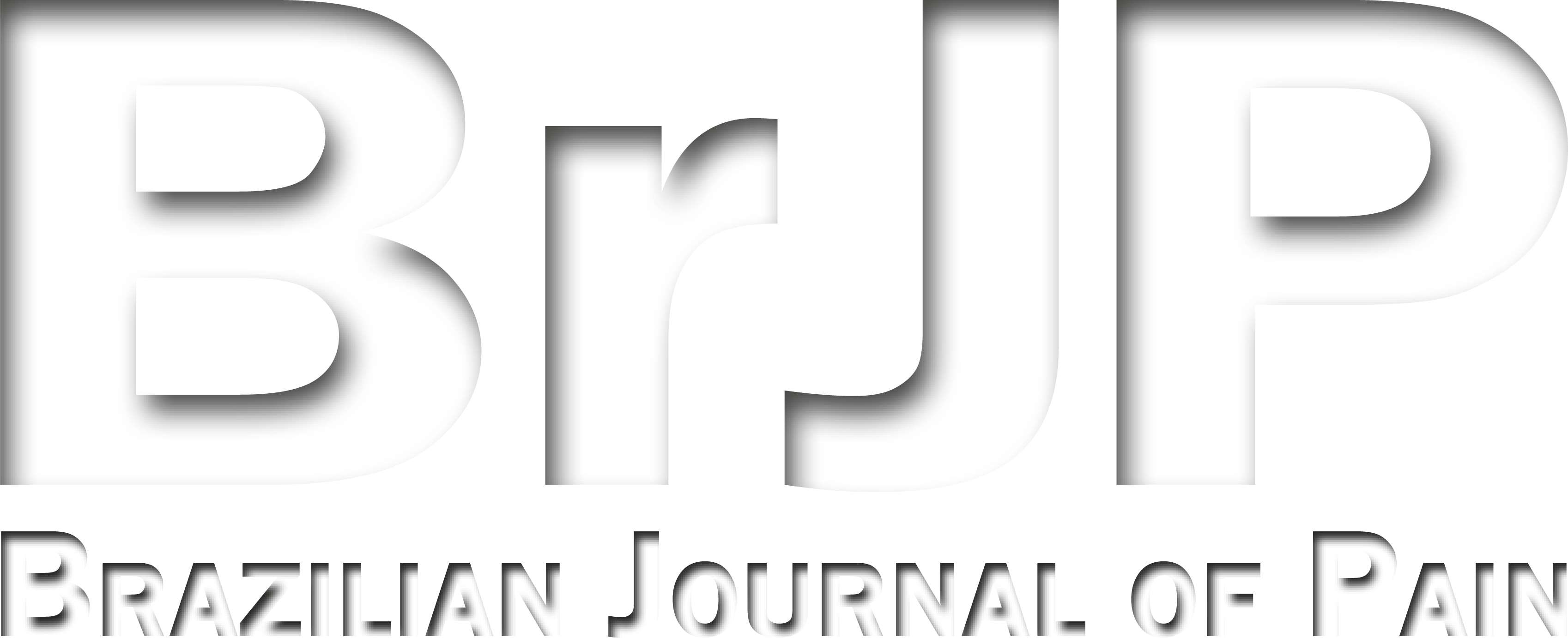Analysis of pain and free cortisol of newborns in intensive therapy with therapeutic procedures
Análise da dor e do cortisol livre em recém-nascidos em terapia intensiva com procedimentos terapêuticos
Cibele Thomé da Cruz Rebelato; Eniva Miladi Fernandes Stumm
Abstract
Keywords
Resumo
Palavras-chave
Referências
Jeong IS, Park SM, Lee JM, Choi YJ, Lee J. Perceptions on pain management among Korean nurses in neonatal intensive care units. Asian Nur Res. 2014;8(4):261-6.
Taddio A, Katz J. Pain, opioid tolerance and sensitisation to nociception in the neonate. Best Pract Res Clin Anaesthesiol. 2004;18(2):291-302.
Prevention and management of procedural pain in the neonate: An Update. Pediatrics. 2016;137(2).
Hingre RV, Gross SJ, Hingre KS, Mayes DM, Richman RA. Adrenal steroidogenesis in very low birthweight preterm infants. J Clin Endocrinol Metab. 1994;78(2):266-70.
Gordon BA, Fletcher MA. Neonatology and pathophysiology management of the newborn. 1999.
Jett PL, Samuels MH, McDaniel PA, Benda GI, Lafranchi SH, Reynolds JW. Variability of plasma cortisol levels in extremely low birth weight infants. J Clin Endocrinol Metab. 1997;82(9):2921-5.
Newnham CA, Inder TE, Milgrom J. Measuring preterm cumulative stressors within the NICU: The Neonatal Infant Stressor Scale. Early Hum Dev. 2009;85(9):549-55.
. .
Anand JJ, Hall RW. Pharmacological therapy for analgesia and sedation in the newborn. Arch Dis Child Fetal Neonatal Ed. 2006;91(6):F448-53.
Rohan AJ. The utility of pain scores obtained during 'regular reassessment process' in premature infants in the NICU. J Perinatol. 2014;34(7):532-7.
Cignacco E, Hamers J, van Lingen RA, Stoffeld L, Büchi S, Müller R. Neonatal procedural pain exposure and pain management in ventilated preterm infants during the first 14 days of life. Swiss Med Wkly. 2009;139(15):226-32.
Duarte JL. Antenatal corticosteroid use and clinical evolution of preterm newborn infants. J Pediatr.. 2004;80(6):529-30.
Lopez O, Subramanian P, Rahmat N, Theam LC, Chinna K, Rosli R. The effect of facilitated tucking on procedural pain control among premature babies. J Clin Nurs. 2015;24(1-2):183-91.
Padhye NS, Williams AL, Khattak AZ, Lasky RE. Heart rate variability in response to pain stimulus in VLBW infants followed longitudinally during NICU stay. Dev Psychobiol. 2009;51(8):638-49.
Mörelius E, He HG, Shorey S. Salivary cortisol reactivity in preterm infants in neonatal intensive care: an integrative review. Int J Environ Res Public Health. 2016;13(3).
Cabral DM, Antonini SR, Custódio RJ, Martinelli Jr CE, da Silva CA. Measurement of salivary cortisol as a marker of stress in newborns in a neonatal intensive care unit. Horm Res Paediatr. 2013;79(6):373-8.
Vinall J, Grunau RE. Impact of repeated procedural pain-related stress in infants born very preterm. Pediatr Res. 2014;75(5):584-7.
Lucas-Thompson R, Townsend EL, Gunnar MR, Georgieff MK, Guiang SF, Ciffuentes RF. Developmental changes in the responses of preterm infants to a painful stressor. Infant Behav Dev. 2008;31(4):614-23.
Brummelte S, Chau CM, Cepeda IL, Degenhardt A, Weinberg J, Synnes AR. Cortisol levels in former preterm children at school age are predicted by neonatal procedural pain-related stress. Psychoneuroendocrinology. 2015;51:151-63.
Submetido em:
05/11/2018
Aceito em:
29/04/2019


